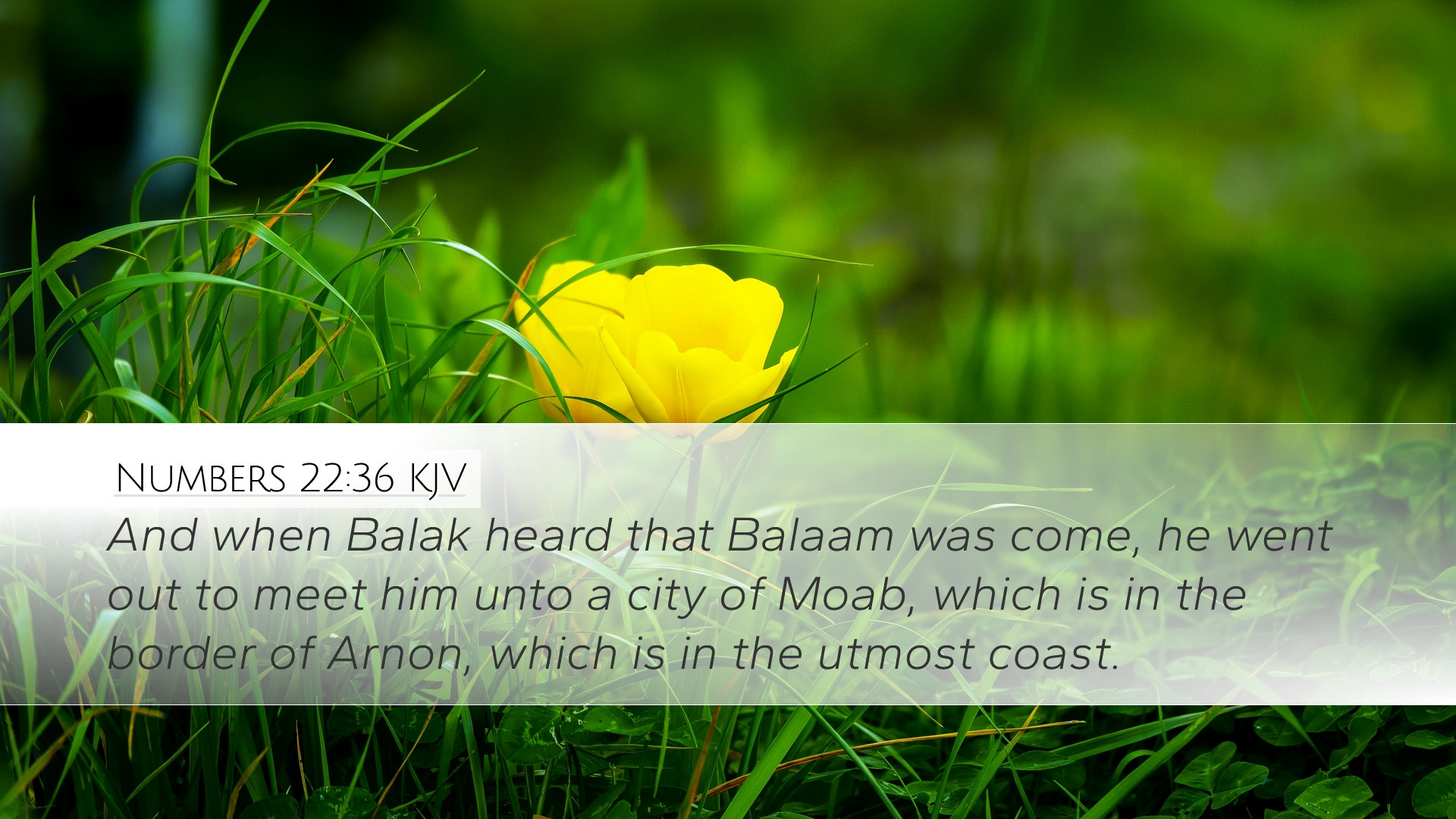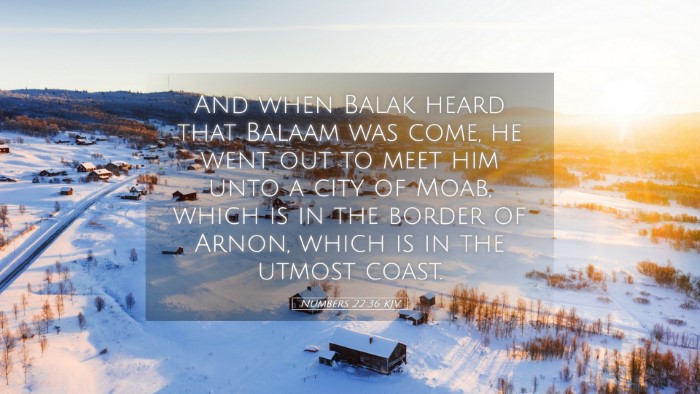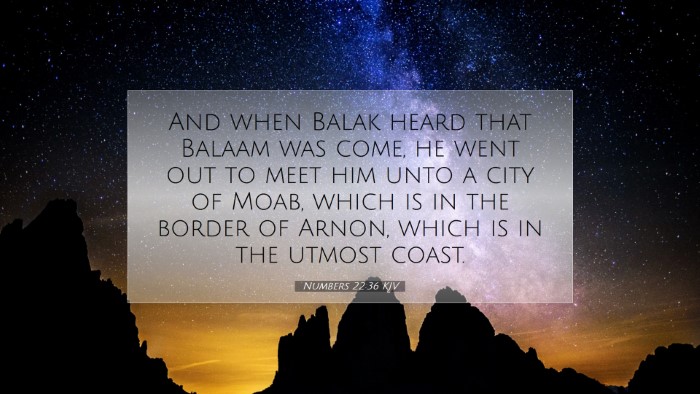Commentary on Numbers 22:36
Numbers 22:36 states: "And when Balak heard that Balaam was come, he went out to meet him unto a city of Moab, which is in the border of Arnon, which is in the utmost coast."
Contextual Overview
This verse occurs within the narrative of Balaam, a diviner summoned by Balak, the king of Moab, to curse the Israelites as they approached the Promised Land. The backdrop of this passage is essential for understanding its theological implications and the relationship between Israel and neighboring nations.
Insights from Matthew Henry
Matthew Henry notes that Balak's eagerness to meet Balaam reflects the seriousness with which he perceives the threat posed by the Israelites. Henry emphasizes the significance of Balaam's presence as an influential figure who had a reputation in the ancient world for his prophetic abilities. Balak's action demonstrates the desperate measures taken by nations in fear of Israel's growing power.
- Fear of Israel: Balak's meeting with Balaam signals a pivotal moment in the unfolding narrative of God’s people.
- Symbol of Rebellion: Henry suggests that the king's reliance on a diviner illustrates a broader theme of mankind's tendency to resort to occult practices instead of trusting in God’s sovereignty.
Insights from Albert Barnes
Albert Barnes provides a detailed examination of the geographical and political implications in this verse. He highlights the geographic details of the city of Moab and the boundaries defined by the River Arnon. Barnes outlines the strategic importance of this locale for Balak and the Moabites, emphasizing that it is not merely a meeting of two individuals but a confrontation between the power of God as manifested in Israel and the pagan forces represented by Balak.
- Geopolitical Context: Balak's initiative to meet Balaam reflects a recognition of Israel's emerging strength.
- Pagan Persuasion: Barnes indicates that the act itself is a poignant reminder of the spiritual battle occurring throughout these narratives, where earthly powers attempt to undermine God's purpose.
Insights from Adam Clarke
Adam Clarke’s commentary provides a nuanced look at the significance of this meeting, noting the cultural and religious dimensions ingrained in the event. Clarke discusses how Balaam, hailed as a prophet of God in some circles, becomes a pawn in Balak's scheme, illustrating the moral and ethical dilemmas faced in the narrative.
- The Dual Role of Balaam: Clarke posits that Balaam's role is complex; while he is sought for his spiritual gifts, his character is ambivalent, pointing to the necessity for discernment among leaders in spiritual matters.
- Divine Sovereignty: Clarke concludes that despite human schemes, God's plan cannot be thwarted, highlighting that this meeting serves to set the stage for God's ultimate purpose – the blessing of Israel, even through attempts to curse them.
Theological Implications
The event described in Numbers 22:36 prompts critical theological reflection. Key themes include:
- The Sovereignty of God: Despite Balak's attempts to influence and manipulate divine prophecy through Balaam, it becomes evident that God's plans prevail. This foreshadows God's relentless commitment to His covenant people.
- The Nature of True Prophecy: The contrast between the true prophet (Moses and the prophets of Israel) and those who described Balaam carries significant implications for understanding prophecy and its ethical dimensions.
- Human Agency and Divine Will: Balak's actions demonstrate how human agency operates under the sovereignty of God. They compel readers to consider how different forms of influence interact within divine governance.
Practical Applications
For pastors, students, and theologians, this verse and its commentary highlight several practical applications:
- Discernment in Leadership: Church leaders must exercise great discernment regarding whom they trust as prophetic voices.
- Understanding Spiritual Warfare: Recognizing that challenges often manifest in spiritual opposition encourages preparation in prayer and reliance on God’s truth.
- Encouragement in God’s Promises: The narrative reinforces the assurance that God’s plans cannot be thwarted by human actions or schemes.
Conclusion
Numbers 22:36, within its broader context, serves as a sobering reminder of the spiritual dynamics at play between God's people and the surrounding nations. Through the insights garnered from commentaries like those of Matthew Henry, Albert Barnes, and Adam Clarke, readers are invited to delve deeply into the complexities of God's covenantal faithfulness amid earthly fears and manipulations. In a world fraught with conflicting ideologies and spiritual pressures, the truth of God's sovereignty remains a cornerstone of faith.


